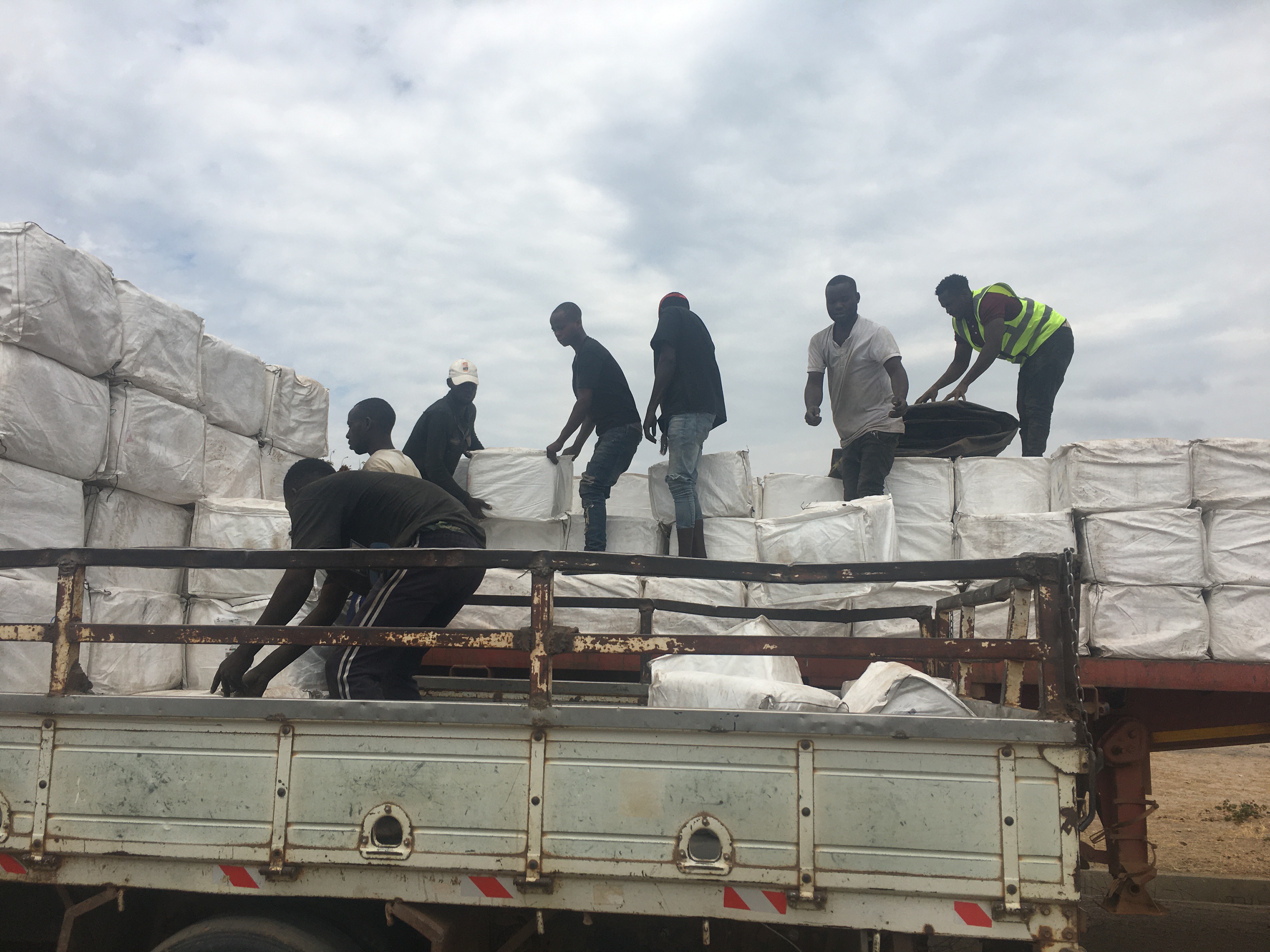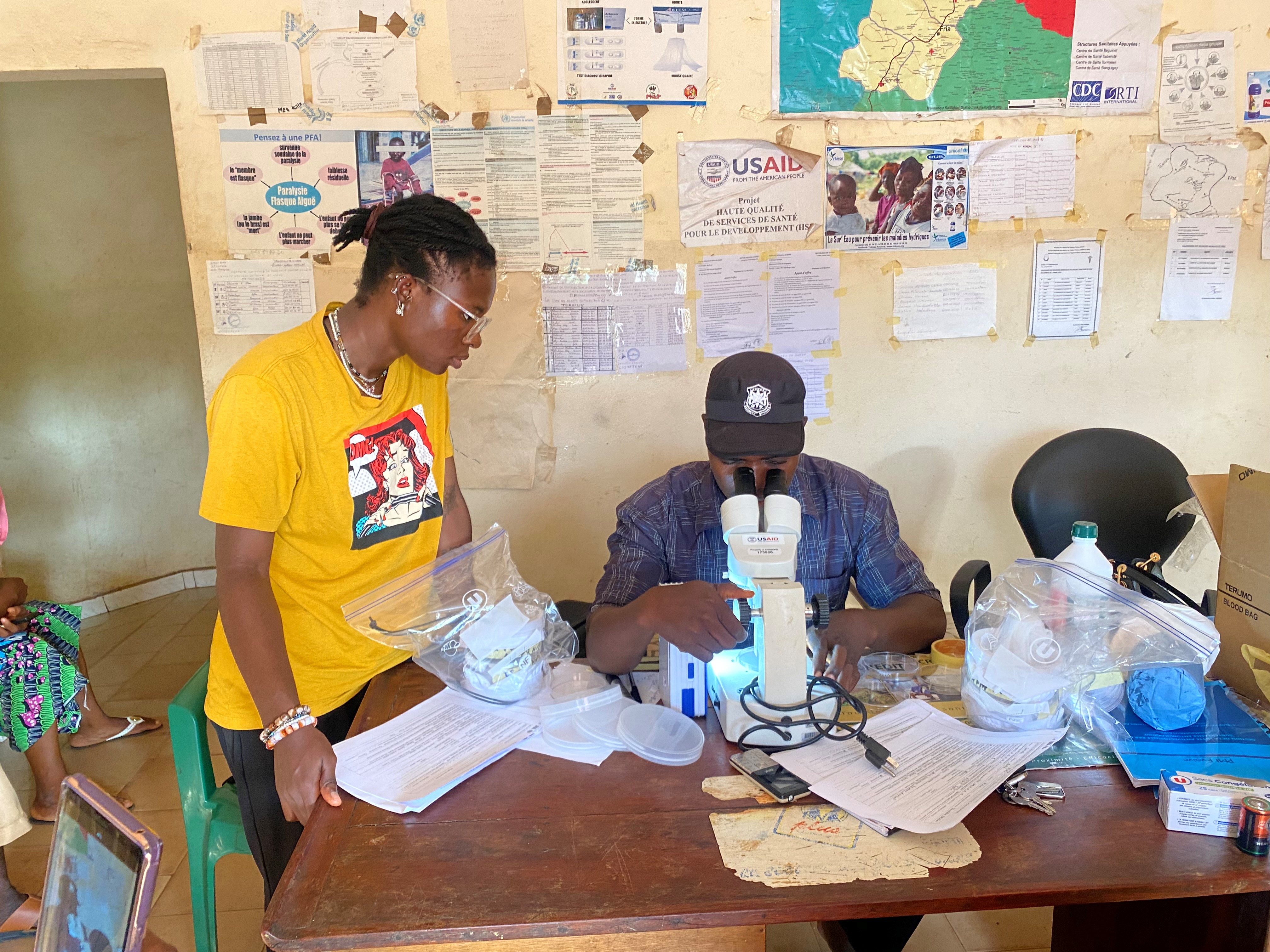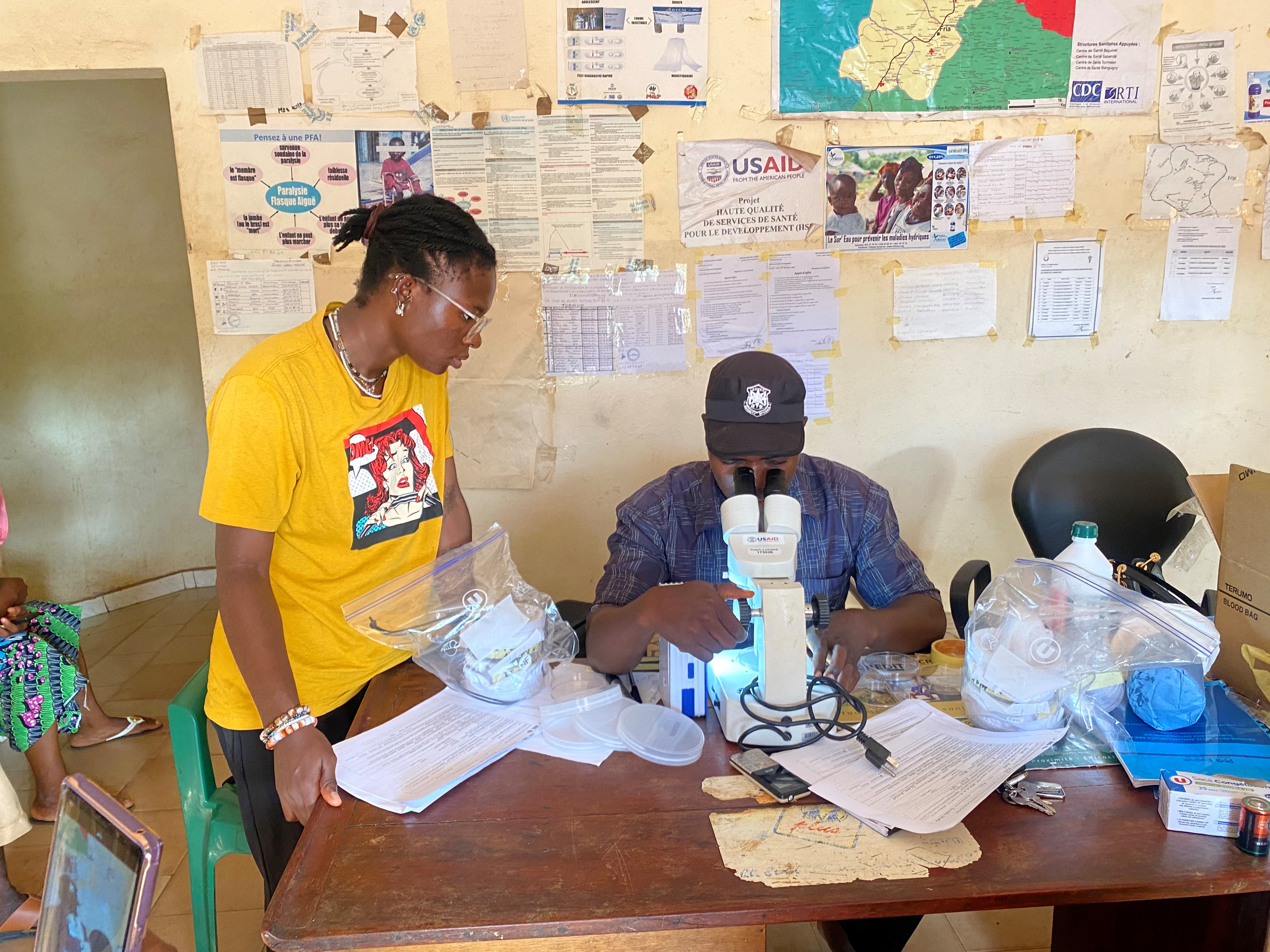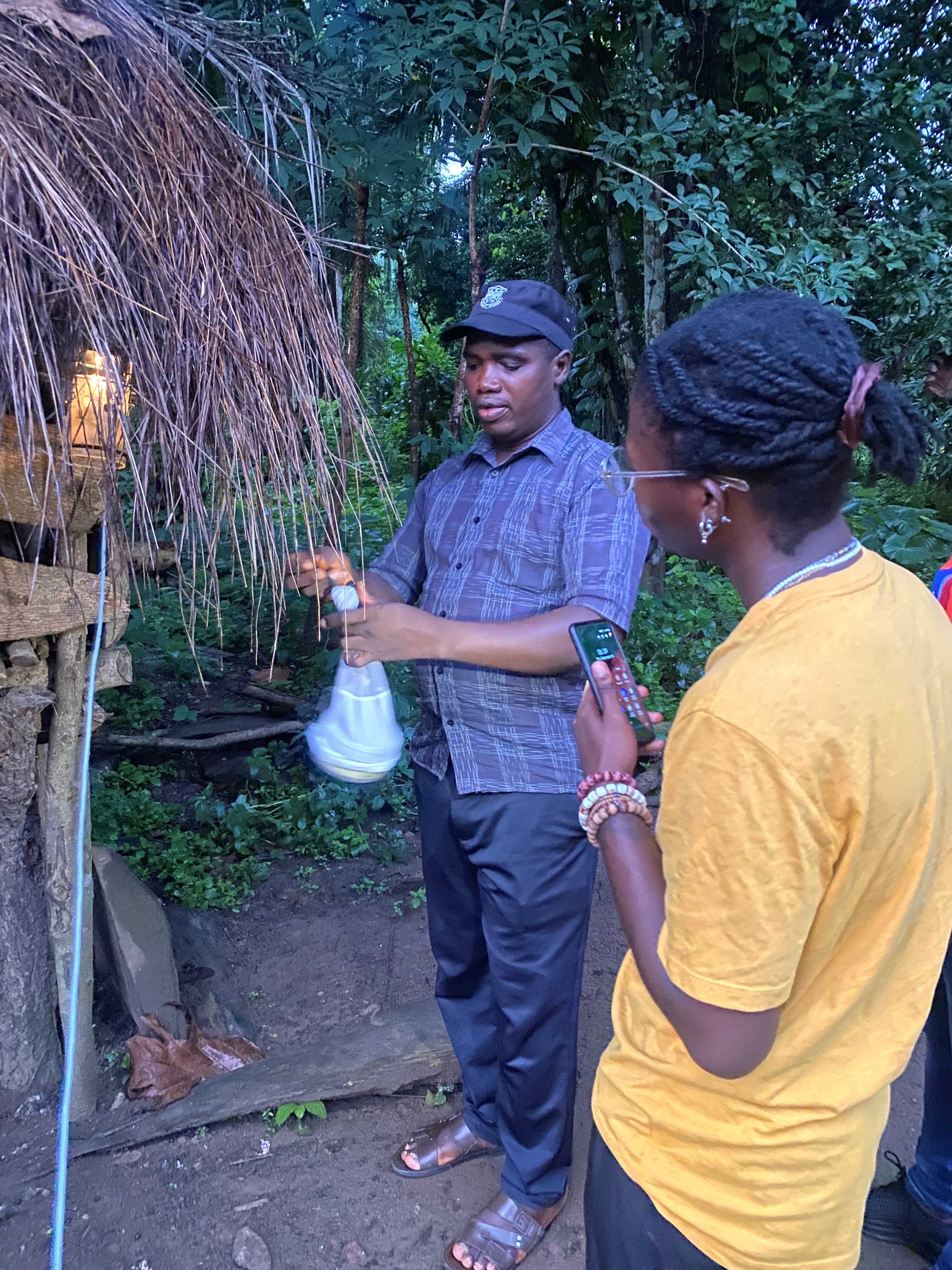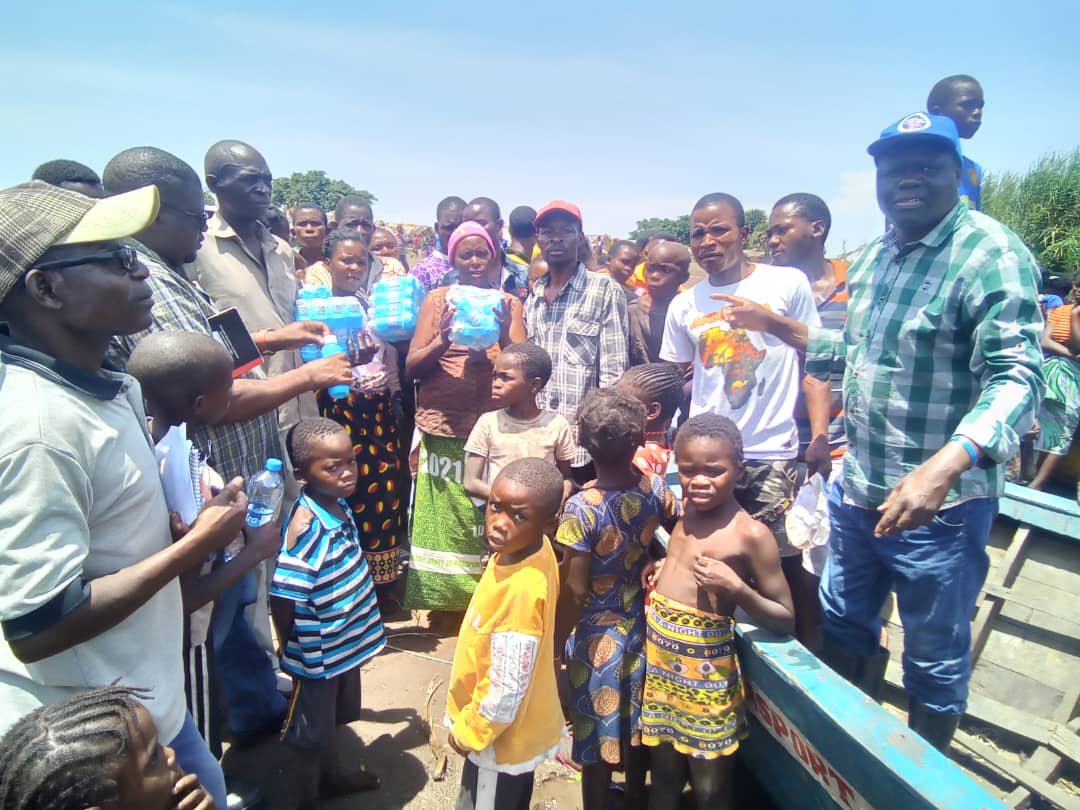
In the heart of Zambia’s Luapula Province, Mateyo Moyo, the chief environmental health officer in Luapula’s Provincial Health Office, stands as a beacon of dedication in the fight against malaria. Known by many simply as “Chief,” his vision, commitment, leadership, and unwavering passion drive the quest to dramatically reduce the burden of malaria in his province. This year, Luapula was the first province to receive and deliver ITNs in Zambia’s 2023 ITN nationwide mass campaign, and Chief Moyo played a major role.
Zambia has witnessed tremendous progress in reducing malaria deaths due in part to the harmonious collaboration of cooperating partners in deploying integrated vector control (IVC) interventions, including mass ITN distribution campaigns. In 2023, the U.S. President’s Malaria Initiative (PMI), the Against Malaria Foundation (AMF), and the Global Fund provided financial and technical support to help procure and distribute a total of 11.5 million ITNs to protect an approximate population of 19 million people spread across 10 provinces.
“Coordinating key stakeholders in the province has been exciting although not easy and at times somewhat stressful,” Chief Moyo states. Among the many stakeholders he has been working with are USAID’s Global Health Supply Chain Procurement and Supply Management (GHSC-PSM) Project, which oversees ITN warehousing and transportation from central warehouses in Lusaka directly to district health facilities; USAID’s Evidence for Health (E4H) Project, which oversees ITN campaign digitization including—for the first time in Zambia—digital data collection during household registration net and distribution; and USAID’s PAMO Plus Project, responsible for sharing key messages with communities about ITN use and how households can register to receive a net. He is also working with the PMI Evolving Vector Control to Fight Malaria Project (PMI Evolve), which oversees final-mile ITN distribution directly to households as well as coordinating technical assistance, timelines, and troubleshooting for the nationwide mass campaign. As Chief Moyo says, “A campaign of this magnitude relies on ensuring that the best coordinating mechanisms are put in place and effectively working together to protect the people from malaria.”
From micro-planning to execution and partner coordination at both provincial and district levels, Chief Moyo’s supervision and leadership have been instrumental, enabling his province to reach its targets for delivering ITNs to households and driving the nationwide campaign to a successful start. Reflecting on the 2023 campaign’s launch, Chief Moyo highlighted several key achievements.
“The collaboration with partners was exemplary, and no population was left unreached,” said Chief Moyo. “We managed to distribute ITNs and protect people living in hard-to-reach communities, such as those in Kilwa and Chisenga islands as well as those in wetlands, to name a few. We distributed a total of 1,118,429 ITNs in the province, to protect approximately 2,236,856 people, which is 11% of the total population of Zambia.”
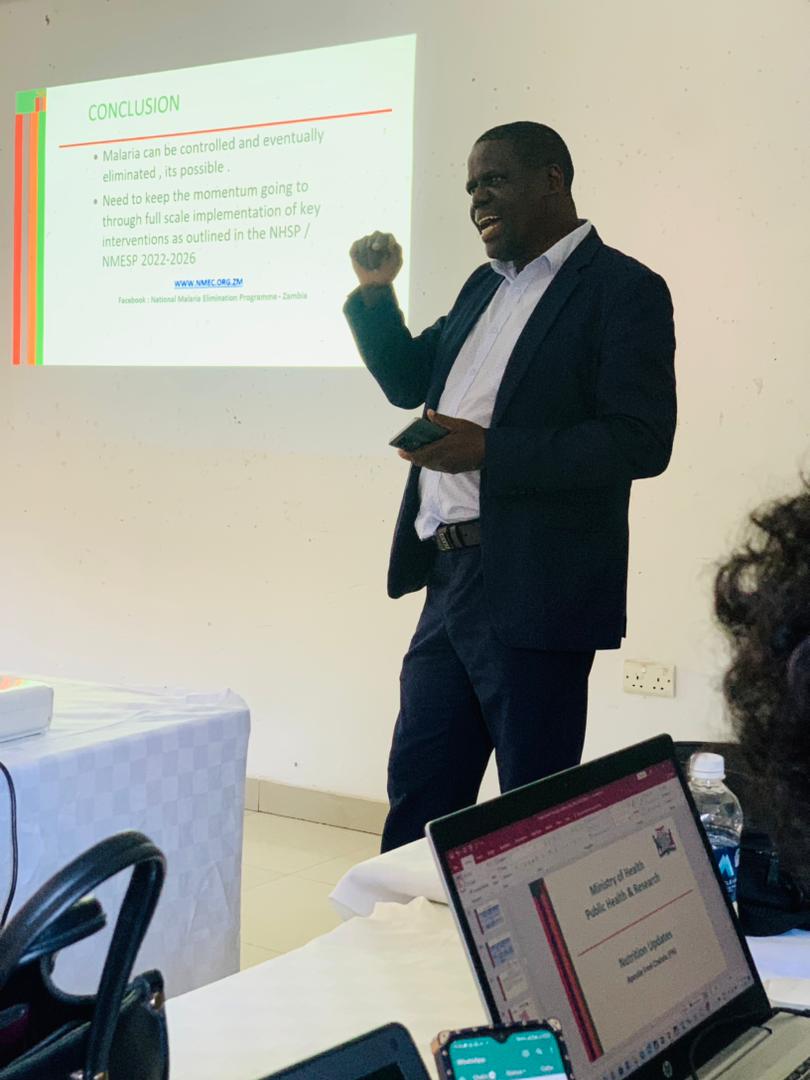
With logistical support from PMI Evolve, Chief Moyo visited all 12 districts in Luapula province himself, both during household registration to receive the nets, and then again during distribution, to ensure that resources were being used and allocated properly. In Lunga district, where families make a living by fishing, Chief Moyo anticipated the possibility of nets being misused as fishing nets once they were distributed, instead of for their intended purpose. Applying insights gleaned from a PMI-funded assessment of potential ITN misuse in northern Zambia, he engaged key local leaders, including representatives from the Ministry of Fisheries as well as traditional chiefs to educate communities on the need to use ITNs correctly. Through a series of meetings, they agreed on penalties for anyone found fishing with an ITN, another step to ensure that the nets would be used in communities as intended.
Zambia, despite its progress, remains a high-burden malaria country with year-round transmission and varying intensities across regions. Chief Moyo, the hero at the heart of Luapula Province’s ITN campaign, embodies the spirit of dedication and collaboration needed to overcome malaria’s challenges and further the country’s progress to reduce malaria. His leadership stands as an inspiring example in the ongoing efforts to protect populations from this devastating disease, contributing significantly to PMI’s strategy to “end malaria faster.”


